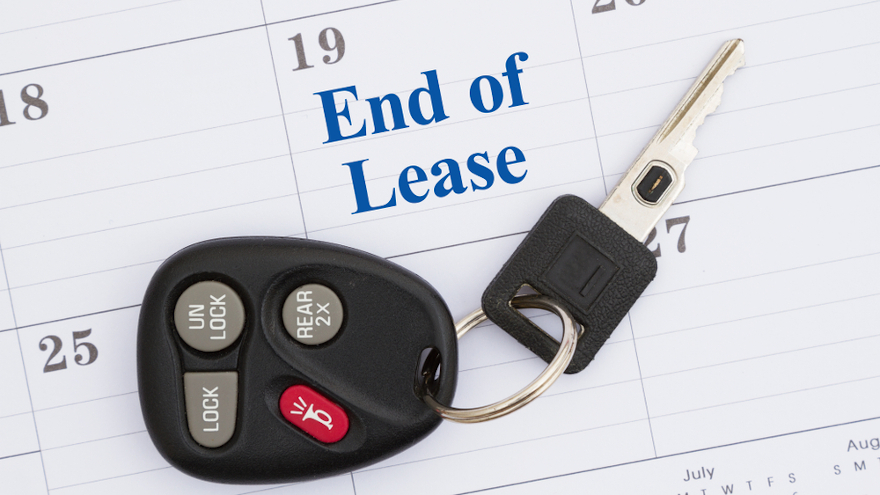How current lease volumes could impact pre-owned supply

By subscribing, you agree to receive communications from Auto Remarketing and our partners in accordance with our Privacy Policy. We may share your information with select partners and sponsors who may contact you about their products and services. You may unsubscribe at any time.
CARY, N.C. –
Lease penetration a shade below 30% not only means that demand for leasing is strong, but future off-lease volumes should continue to be plentiful to a used-car market that hasn't just absorbed the additional supply, but thrived from it.
That’s according to analysis released Friday by Cox Automotive, which did the math on how current leasing levels will impact future off-lease supply, among other metrics.
With a retail lease penetration rate of 29.6% through eight months of the year, that means about 2.5 million vehicles and counting — with four months remaining — will hit the used-car market in coming years, potentially as certified pre-owned units, according to Cox Automotive.
“The wholesale and used-vehicle markets have been able to absorb the volumes of off-lease units returning to market driven by a strong used retail demand, particularly for high-contented vehicles,” the company said in its analysis.
“Certified pre-owned sales especially benefit from the ample supply of off-lease inventory which provides an attractive selection of nearly-new vehicles eligible to be certified,” it added.
They certainly have so far this year.
Subscribe to Auto Remarketing to stay informed and stay ahead.
By subscribing, you agree to receive communications from Auto Remarketing and our partners in accordance with our Privacy Policy. We may share your information with select partners and sponsors who may contact you about their products and services. You may unsubscribe at any time.
There are likely to be 2.75 million certified pre-owned sales in 2019, according to a separate Cox Automotive analysis. That would beat last year’s 2.7 million sales and mark the ninth consecutive record year. There were 2.1 million certified sales through the first three quarters of the year, which outpaces year-ago figures by 2.4%, Cox said.
The company is expecting a "plateau" in used-car sales, with the overall used market projected to reach 39.2 million in 2019 and 39.0 million in 2020, following used sales of 39.4 million last year, it said in a Wholesale Markets Insights report.
But in what Cox Automotive considers to be used retail (sales from independent and franchised dealers, excluding private-party figures), used sales are expected to climb from 19.5 million in 2018 to 19.8 million this year and 20.0 million next year.
As far as off-lease numbers for this year, Cox Automotive is projecting a peak of 4.1 million in lease maturities for 2019 and then a repeat of that in 2020. Last year, there were 3.9 million lease maturities, up from 3.4 million in 2018 and 3.0 million in 2016.
A peak in off-lease volume could help hold up used-car prices.
In a report earlier this month, Fitch Ratings said that the expectation-defying used-car price strength can be attributed to the growing gap in average new- and used-vehicle prices, plus lower incentives thanks to automaker production discipline. But still, recent months had shown incentives were starting to grow, Fitch said. If that holds up, the value proposition of a used car may lessen, as might the price.
"With off-lease vehicles expected to peak this year, it appears less likely that used vehicle prices will come under meaningful pressure in the near-term barring a sharp decline in the broader economy,” said Michael Taiano, senior director at Fitch Ratings, in the analysis.
“Additionally, the ongoing trade war and proposed tariffs on imports, if implemented, could further exacerbate the price differential between new and used vehicle prices, improving the value proposition for used vehicles,” he said.
Lease number breakdown
Volume-wise, there has been a 1.3% decline in the number of leases written through the first eight months of the year, Cox Automotive said. Still, the lease penetration rate mentioned earlier (29.6%) is still a percentage point ahead of full-year 2018 figures.
By brand, Infiniti topped the list with 66.4% lease penetration through eight months, followed by Acura, Mercedes-Benz, Land Rover, BMW, Audi and Lexus, respectively — all of which hover in the neighborhood of 60%, Cox Automotive said, citing IHS Polk Markit Insights.
Volkswagen leads the non-luxury pack with 42.8% lease penetration year-to-date through August, with Honda and Jeep next in line.
An analysis from KeyBanc Capital Markets last month projected an estimated lease penetration for 2019 is north of 31%, indicating these rates are at record heights.


